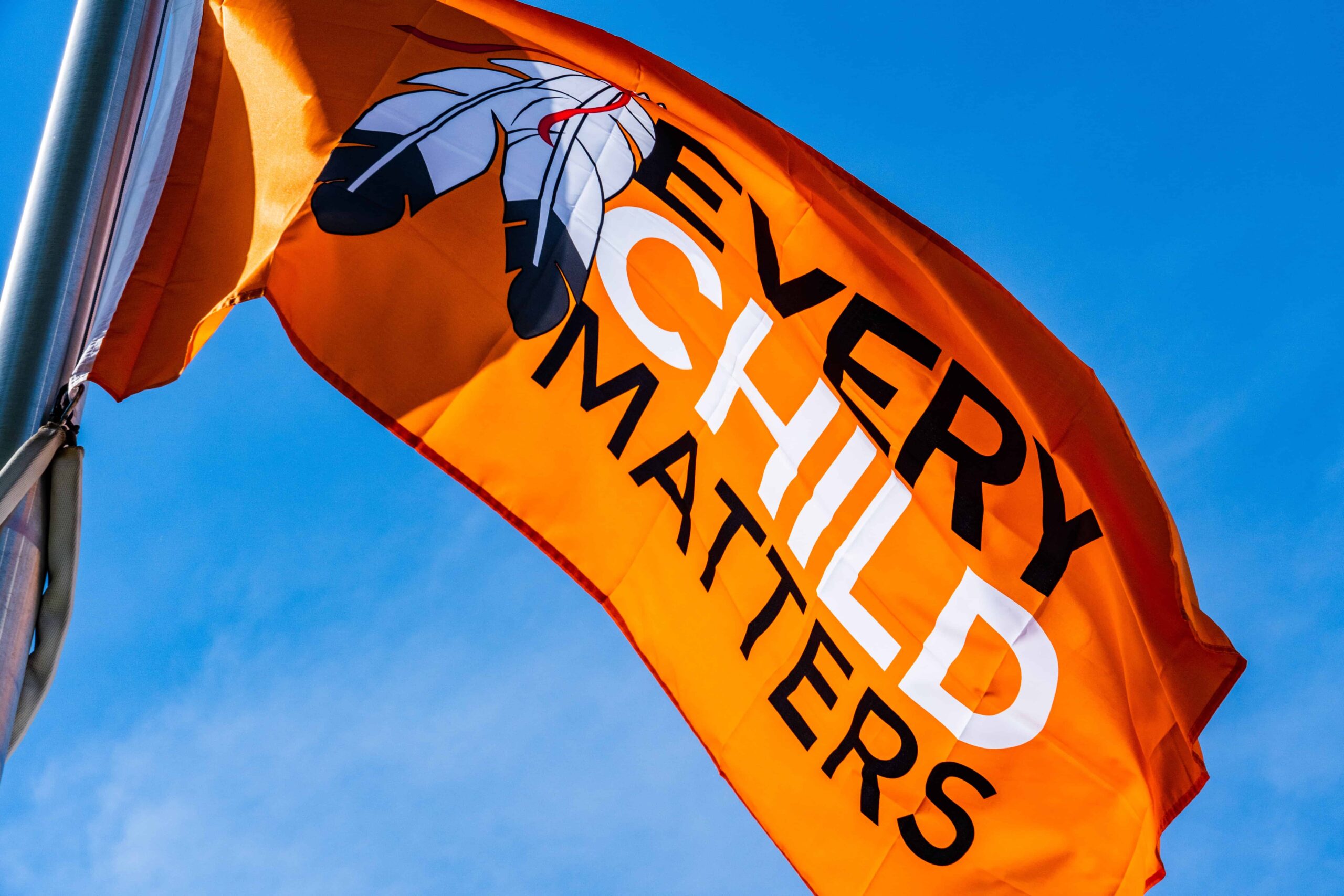- About
- Research
-
-
- Special Reports & Features
- Braiding Accountability: A Ten-Year Review of the TRC’s Healthcare Calls to Action
- Buried Burdens: The True Costs of Liquified Natural Gas (LNG) Ownership
- Pretendians and Publications: The Problem and Solutions to Redface Research
- Pinasunniq: Reflections on a Northern Indigenous Economy
- From Risk to Resilience: Indigenous Alternatives to Climate Risk Assessment in Canada
- Twenty-Five Years of Gladue: Indigenous ‘Over-Incarceration’ & the Failure of the Criminal Justice System on the Grand River
- Calls to Action Accountability: A 2023 Status Update on Reconciliation
- View all reports.
- Special Reports & Features
-
-
- Yellowhead School
-
- The Treaty Map
- LIBRARY
- Submissions
- Donate
This week, the long fought for child welfare compensation settlement agreement was rejected by the Canadian Human Rights Tribunal (CHRT) because it did not meet their previous ruling’s requirements.
Before the decision on Tuesday, the First Nation Caring Society had raised concerns about the settlement; many groups who suffered discrimination would be left out, they said. The Assembly of First Nations did not heed those warnings.
Now, it seems despite years of collaboration on ending discrimination against First Nation children, the two organizations have found themselves at odds.
In a reflection of the increasingly hostile atmosphere, and in response to the CHRT’s ruling, Cornell McLean, the former Grand Chief of the Assembly of Manitoba Chiefs went so far as saying, “in Cindy Blackstock’s eyes, no child matters.”
The AFN’s Rationale
Yellowhead recently received a copy of a confidential Briefing Note to the Assembly of First Nations (AFN) Executive Committee that describes how AFN lawyers have approached the negotiations. It offers possible insights into the cleavage.
The 7-page briefing note is from September 2021. It outlines court proceedings up to that point but also describes a parallel negotiation that resulted in a breakthrough on one element: the “removed children” claim (those who were removed from their homes in the discriminatory system). The note reveals that in July 2021, Canada had actually offered a settlement of $5.3 billion dollars. Other elements of the CHRT compensation ruling would continue to be litigated and lawyers for the organization suggested then that a “global settlement appears impossible.”
AFN Lawyers argued that the Executive Committee take the offer.
The rationale included the following:
- the belief that the AFN would not get more in compensation, even through litigation;
- that they might even lose litigation and get nothing; and
- that “time was of the essence” because the 2021 federal election was impending (scheduled a week after the Note’s date).
Ultimately, this September 2021 deal did not proceed. Either the Executive Committee rejected their lawyer’s advice or the federal election simply bumped the process.
And in retrospect, the rationale from the AFN lawyers did not stand the test of time. In the intervening months, Canada did make a more significant offer: $20 billion for those removed and/or discriminated against in the system along with their families (an enlarged category from “removed children”) and an additional $20 billion to reform the child welfare system. It appears the threat of litigation did help secure the higher settlement. And, of course, a Liberal government formed after the election and did indeed continue to negotiate.
Despite this, and given what we know now about the second failed settlement agreement, did AFN lawyers also encourage accepting this latest settlement offer under the same rationale that had already been proven ineffective? How did they address the Caring Society’s concerns, if at all?
Interestingly, those lawyers knew there would be possible consequences, writing in their September 2021 note that “there is a risk of the settlement amount differing (either favourably or unfavourably) from the CHRT-ordered compensation in 2019.”
Given this week’s developments, it appears this was a risk that they ultimately chose to ignore.
Who Actually Decides?
Much is still unclear about the AFN Executive’s decision-making process. Are lawyers shaping the limits of what is possible? And where do ordinary elected band council Chiefs fit in the process?
In July 2022, very soon after this latest settlement agreement was reached and the first time Chiefs in Assembly were able to meet, there was little discussion of the agreement. (Perhaps Chiefs were preoccupied with the challenge to National Chief Archibald’s leadership).
On Tuesday the CHRT questioned why that was the case, noting with “concern” the lack of any resolution supporting the settlement agreement.
In fact, the only related resolution at that General Assembly was Ogimaa Duke Peltier’s on affirming First Nation jurisdiction over First Nation children, whether they reside on reserve or off. In the dialogue around that resolution, the Caring Society proposed amendments meant to ensure service delivery to off reserve children. They were all rejected.
The coming weeks will offer a third chance to get the settlement agreement right. Until then, the AFN Executive Committee also has an opportunity to find again the spirit of collaboration that had, until recently, done so much good work for First Nation children.
Citation: Skoden, Edward. “The Assembly of First Nations & the Failure of the Child Welfare Settlement Agreement” Yellowhead Institute. 27 October 2022. https://yellowheadinstitute.org/2022/10/27/afn-the-failure-of-child-welfare-settlement-agreement/

